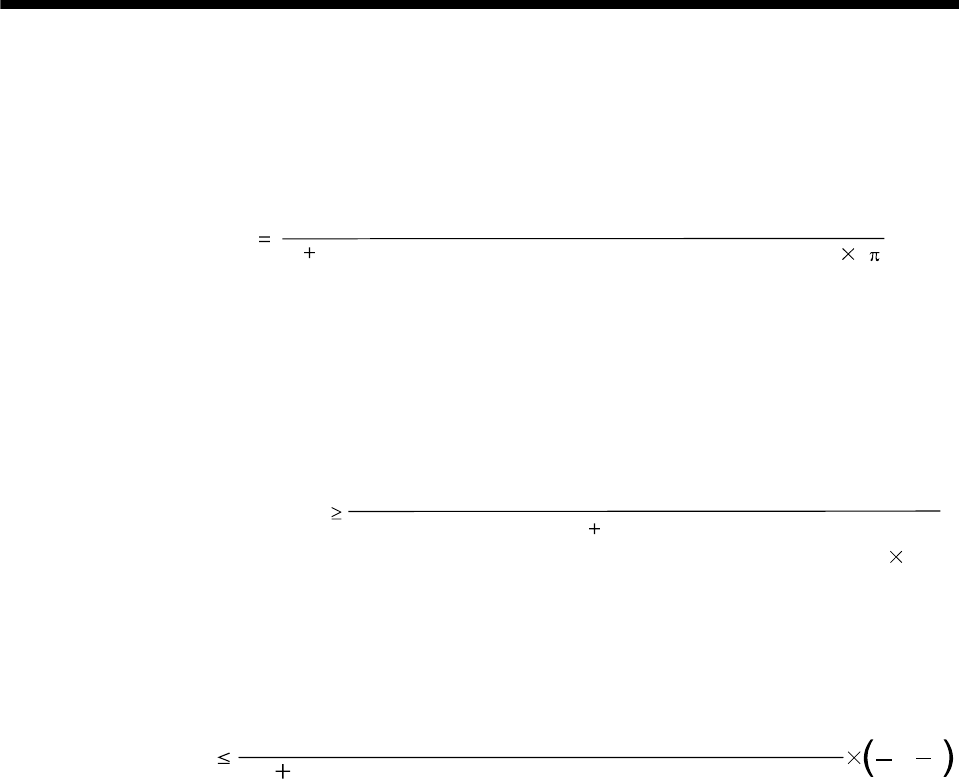
8 - 8
8. GENERAL GAIN ADJUSTMENT
(c) Adjustment description
1) Speed loop gain (parameter No. PB09)
This parameter determines the response level of the speed control loop. Increasing this value
enhances response but a too high value will make the mechanical system liable to vibrate. The
actual response frequency of the speed loop is as indicated in the following expression.
Speed loop response
f
requency(Hz)
Speed loop gain setting
(1 ratio of load inertia moment to servo motor inertia moment)
2
2) Speed integral compensation (VIC: parameter No. PB10)
To eliminate stationary deviation against a command, the speed control loop is under proportional
integral control. For the speed integral compensation, set the time constant of this integral control.
Increasing the setting lowers the response level. However, if the load inertia moment ratio is large or
the mechanical system has any vibratory element, the mechanical system is liable to vibrate unless
the setting is increased to some degree. The guideline is as indicated in the following expression.
Speed integral compensation
setting(ms)
2000 to 3000
(1 ratio of load inertia moment to
servo motor inertia moment settin
g
0.1
)
Speed loop gain setting/
3) Model loop gain (PG1: Parameter No.PB07)
This parameter determines the response level to a position command. Increasing the model loop
gain improves track ability to a position command, but a too high value will make overshooting liable
to occur at the time of setting.
Model loop gain
guideline
Speed loop gain setting
(1 ratio of load inertia moment to servo mortar inertia moment)
1
4
1
8
to


















